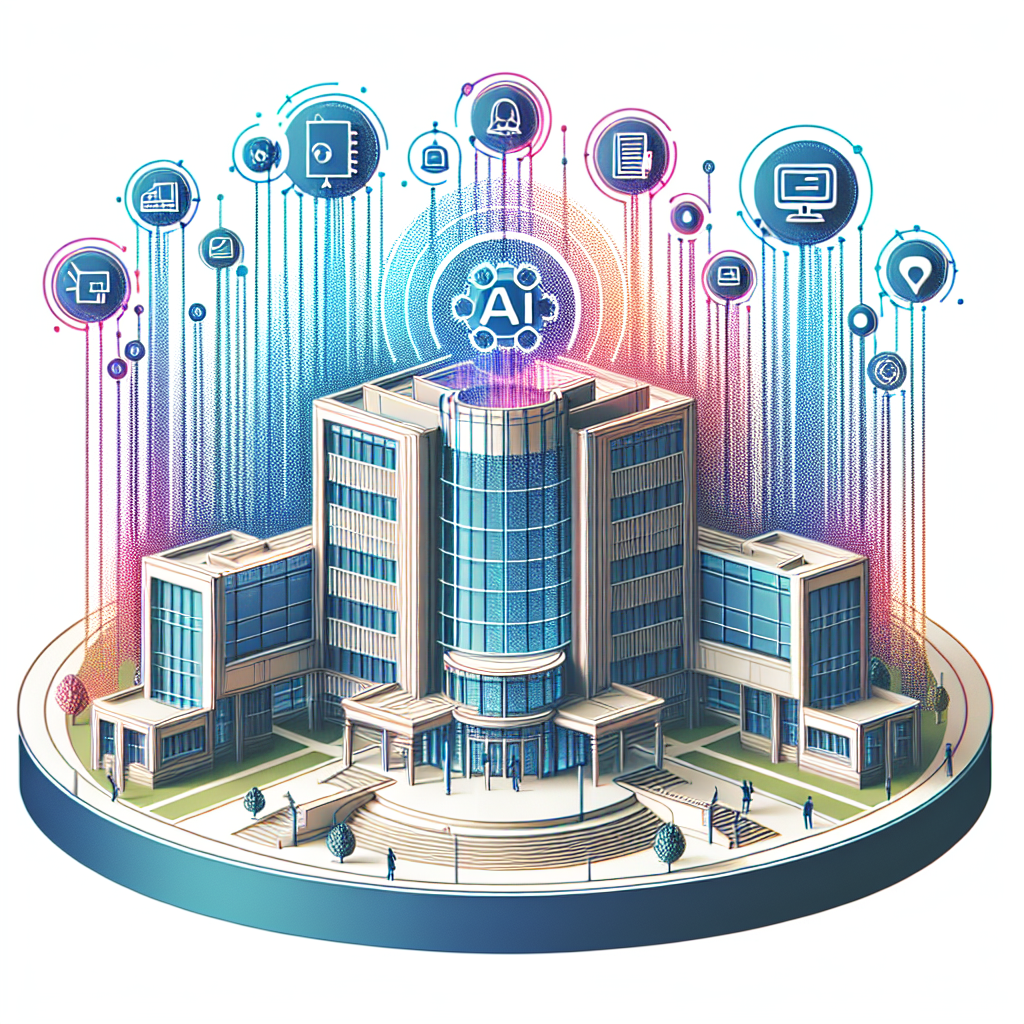Artificial Intelligence (AI) has become a game-changer in various industries, and education administration is no exception. AI technology has the potential to revolutionize how educational institutions manage their processes, improve efficiency, and enhance overall student experience. By leveraging AI tools, educational administrators can streamline administrative tasks, make data-driven decisions, and ultimately create a more effective and efficient system.
One of the key benefits of AI in education administration is its ability to automate repetitive tasks. Administrative tasks such as data entry, scheduling, and communication can be time-consuming and prone to human error. AI-powered tools can automate these processes, freeing up administrators to focus on more strategic tasks. For example, AI chatbots can handle student inquiries, schedule appointments, and provide information on courses and programs, improving overall efficiency and reducing the burden on administrative staff.
AI technology can also help educational institutions make data-driven decisions. By analyzing large amounts of data, AI algorithms can identify patterns and trends that may not be immediately apparent to human administrators. This can help institutions better understand student performance, engagement, and retention rates, allowing them to tailor their programs and services to meet the needs of their students more effectively.
Another key benefit of AI in education administration is its ability to enhance the student experience. AI tools can provide personalized recommendations for courses, programs, and extracurricular activities based on a student’s interests, abilities, and learning style. This can help students make more informed decisions about their education and ultimately improve their overall academic performance and satisfaction.
In addition to streamlining processes and improving efficiency, AI technology can also help educational institutions enhance security and privacy. AI-powered tools can detect and prevent security breaches, identify potential threats, and protect sensitive student data from unauthorized access. This can help institutions comply with regulations such as the Family Educational Rights and Privacy Act (FERPA) and ensure the safety and security of their students’ information.
Despite the numerous benefits of AI in education administration, there are also challenges and concerns that need to be addressed. One of the main concerns is the potential for bias in AI algorithms. If AI tools are not properly designed and trained, they may inadvertently perpetuate biases that exist in society, such as racial or gender discrimination. Educational institutions must be mindful of these risks and take steps to ensure that their AI systems are fair and unbiased.
Another challenge is the need for proper training and support for administrators to effectively use AI tools. Implementing AI technology in education administration requires specialized skills and knowledge, and administrators may need training to fully understand how to leverage these tools effectively. Institutions must invest in training programs and support resources to ensure that their staff are equipped to make the most of AI technology.
Despite these challenges, the potential benefits of AI in education administration are significant. By streamlining processes, making data-driven decisions, enhancing the student experience, and improving security and privacy, AI technology has the power to transform the way educational institutions operate. As AI technology continues to evolve and improve, it is likely that its impact on education administration will only grow stronger in the years to come.
FAQs:
Q: What are some examples of AI tools that can be used in education administration?
A: Some examples of AI tools that can be used in education administration include chatbots for student inquiries, predictive analytics for student performance, and learning management systems that personalize course recommendations for students.
Q: How can AI technology help educational institutions improve security and privacy?
A: AI technology can help educational institutions improve security and privacy by detecting and preventing security breaches, identifying potential threats, and protecting sensitive student data from unauthorized access.
Q: What are some challenges of implementing AI technology in education administration?
A: Some challenges of implementing AI technology in education administration include the potential for bias in AI algorithms, the need for proper training and support for administrators, and concerns about data privacy and security.
Q: What are the potential benefits of AI technology in education administration?
A: Some potential benefits of AI technology in education administration include streamlining processes, making data-driven decisions, enhancing the student experience, and improving security and privacy.

